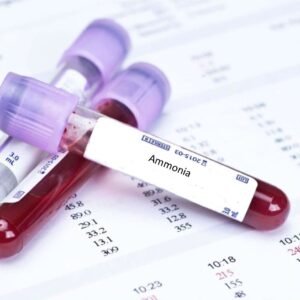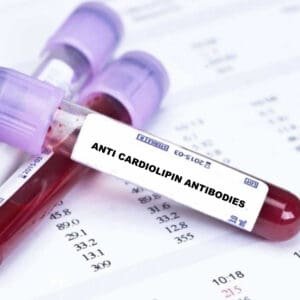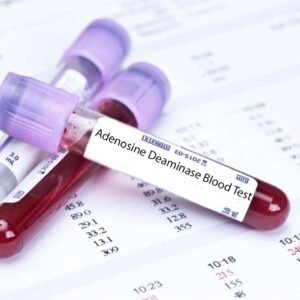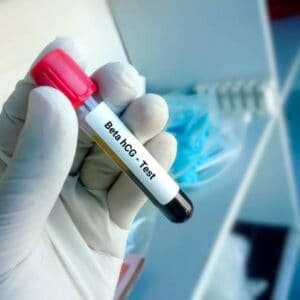Description
The anti-CCP antibody test measures your body’s level of antibodies that commonly target specific proteins found in the joints. These antibodies are commonly found in rheumatoid arthritis patients. Let’s look at how doctors use this test as an auto-immune marker.
What Are Anti-cyclic Citrullinated Peptide Antibodies and why are they elevated in RA?
Anti-cyclic citrullinated peptide (anti-CCP) antibodies are commonly found in patients with rheumatoid arthritis (RA), an autoimmune disorder that destroys the joints throughout the body. These antibodies are made as a direct attack of specific proteins found naturally in the body.
Anti-CCP antibodies target proteins in which the amino acid arginine has been converted (citrullinated) into another amino acid called citrulline. Citrullinated proteins increase their levels substantially when an inflammatory cascade is activated such as in RA.
Normally, the immune system is tolerant of these proteins, but in patients with RA, the body mounts an immune response and creates antibodies to target and destroy these citrullinated proteins.
This immune activation destroys healthy tissue in the joints and worsens RA symptoms.
Anti-CCP antibodies may also be detected in other inflammatory diseases and conditions involving the joints and connective tissue, including:
- Psoriatic arthritis, a form of arthritis that occurs in people with the skin disease psoriasis
- Sjogren’s syndrome
- Systemic lupus erythematosus
- Hepatitis C infection
Anti-CCP antibodies belong to a family of similar antibodies known as anti-citrullinated protein antibodies (ACPAs) [5].
Some tests can detect the presence of other types of ACPAs that the anti-CCP antibody test can’t detect. However, the anti-CCP antibody test is the most widely-used ACPA test in clinical practice due to its accuracy [5].
The anti-CCP antibody test may also be referred to as an ACPA antibody test.
How is the Test Used?
Anti-CCP antibodies can be detected in the early stages of RA, even before symptoms are present. They are more often found in severe forms of the disease and increase the risk of more rapid destruction of the joints.
Until recently, rheumatoid factor (another antibody involved in RA) was the only antibody used to help diagnose the disease. However, in 2010, the American College of Rheumatology changed their criteria for diagnosing RA to include the presence of anti-CCP antibodies.
Testing for anti-CCP antibodies helps doctors to diagnose RA patients and determine how severe the disease is, as well as predict the likely outcome of the disease. Early detection of anti-CCP antibodies is crucial to properly treat the disease and stop its progression.
Anti-CCP antibody testing is not used to monitor RA because changes in antibody levels are not linked to changes in disease activity and patients tend to remain positive even with the reduction or disappearance of the symptoms of RA.
The test is also not used to screen for RA patients because it can frequently miss individuals who have the disease,
Anti-CCP Antibody Testing
Anti-CCP antibody testing usually requires that you have your blood drawn and sent to a lab.
The test is ordered when a person displays signs and/or symptoms of rheumatoid arthritis. These include:
- Painful or swollen joints (especially the fingers and wrists), usually occurring on both sides of the body
- Stiffness in the joints that gradually decreases throughout the day
- Muscle weakness and fatigue
- Rheumatoid nodules, small hard lumps that develop under the skin
A rheumatoid factor (RF) test is commonly ordered alongside an anti-CCP test to help make a diagnosis. Your doctor will also order ESR and CRP tests that measure inflammation.
Anti-CCP antibodies are the most specific test for diagnosing RA.
This means that false positives are rare and therefore a positive result means you are much more likely to have RA.
However, it isn’t a very sensitive marker, which means that a negative result does not necessarily rule out rheumatoid arthritis.
There is a newer version of the test that has improved sensitivity, which reduces the chance of a false negative. However, most labs do not offer this test yet.
Anti-CCP antibodies can be detected in RA patients years before they show any symptoms.






Reviews
There are no reviews yet.